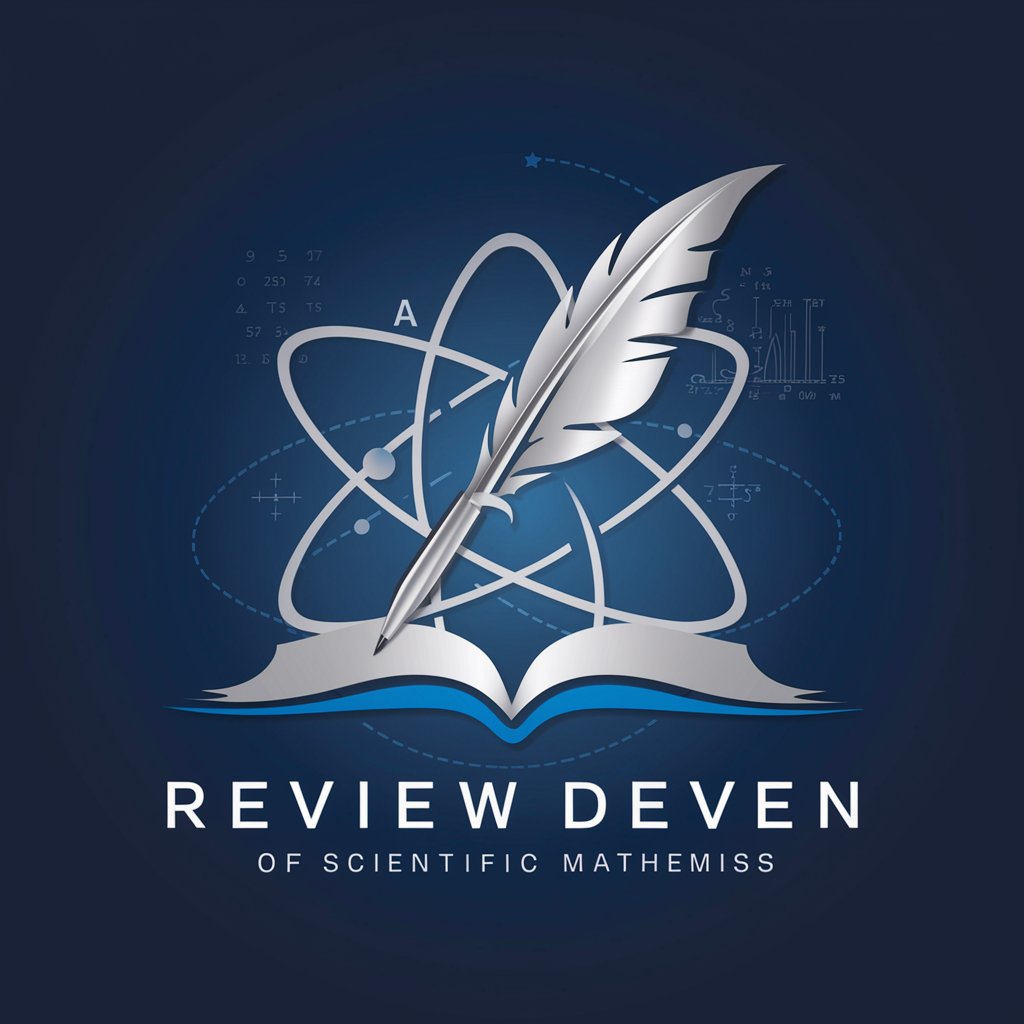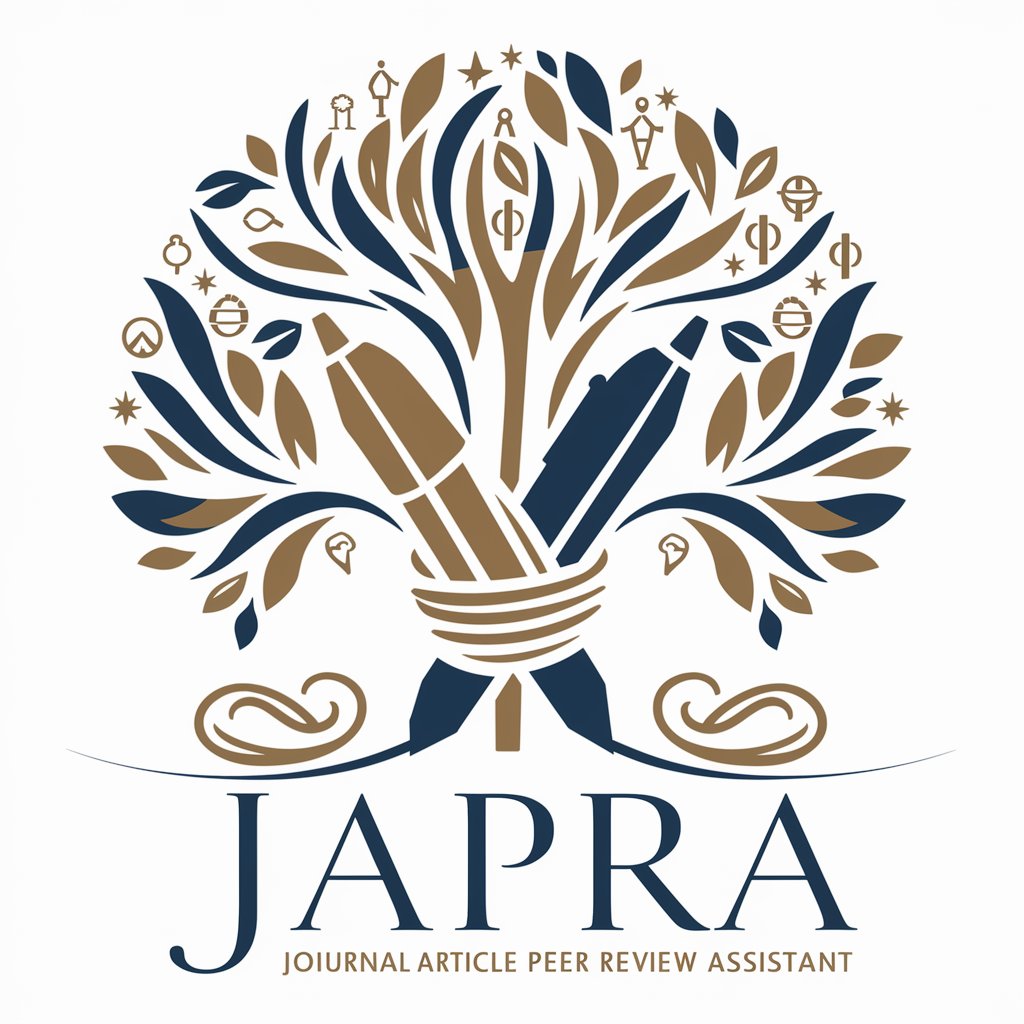6 GPTs for Manuscript Feedback Powered by AI for Free of 2025
AI GPTs for Manuscript Feedback refer to the use of advanced Generative Pre-trained Transformers specifically designed or adapted to assist in the review and improvement of manuscripts. These AI tools leverage the capabilities of GPTs to analyze text, provide constructive feedback, suggest improvements, and even help with editing and formatting in alignment with specific requirements of the manuscript. By understanding the context and content of the manuscript, these AI tools offer targeted suggestions and edits, making them invaluable for writers, editors, and publishers.
Top 6 GPTs for Manuscript Feedback are: Scientific Paper Reviewer,Journal Article Peer Review Assistant (JAPRA),Academic Review Assistant,Paper Analyzer,EPEMC Peer Review Bot,Self-Publish Pro
Scientific Paper Reviewer
Elevate Your Research with AI

Journal Article Peer Review Assistant (JAPRA)
Elevate Your Research with AI-Powered Reviews

Academic Review Assistant
Elevating Research with AI Insights

Paper Analyzer
Empower Your Research with AI

EPEMC Peer Review Bot
Enhancing Scientific Manuscripts with AI

Self-Publish Pro
Empowering Authors with AI-Driven Self-Publishing Support

Key Capabilities of Manuscript Feedback AI
The core features of AI GPTs for Manuscript Feedback include advanced text analysis, context-aware suggestions, and adaptive feedback mechanisms. These tools can handle a range of tasks from grammar correction to style enhancement and structural advice. Special features may include language learning for better understanding of different writing styles, technical support for specific formatting guidelines, integration with web search for fact-checking or additional data, image creation for enhancing visual aspects of a manuscript, and data analysis capabilities for more technical content.
Who Benefits from Manuscript Feedback AI?
The target audience for AI GPTs for Manuscript Feedback includes novices, experienced writers, editors, publishers, and academic professionals. These tools are designed to be user-friendly for individuals without programming skills, offering intuitive interfaces and guided assistance. At the same time, they provide robust customization options for developers and professionals who wish to tailor the AI's capabilities to specific types of manuscripts or incorporate advanced features into their workflow.
Try Our other AI GPTs tools for Free
Revision Guidance
Discover how AI GPTs for Revision Guidance can transform your editing process with advanced, AI-driven tools tailored for impeccable written communication.
Concept Breakdown
Discover AI GPTs for Concept Breakdown: Tailored AI tools designed to simplify complex concepts using advanced algorithms, making them accessible to a wide audience.
In-depth Exploration
Explore the depths of any topic with AI GPTs designed for In-depth Exploration, offering customizable, advanced analysis for various sectors.
Condition Matching
Discover how AI GPTs for Condition Matching can transform data analysis and decision-making with advanced AI capabilities tailored for precise condition-based solutions.
Latest Trends
Discover how AI GPTs for Latest Trends harness the power of AI to forecast and analyze emerging developments, offering a competitive edge with real-time insights.
Partner Management
Discover how AI GPTs for Partner Management revolutionize partnership strategies with tailored AI solutions, enhancing communication, analysis, and strategic decision-making.
Broader Implications of AI in Manuscript Editing
AI GPTs for Manuscript Feedback represent a significant advancement in editing technology, offering scalable, efficient, and increasingly sophisticated solutions for manuscript review. These tools not only streamline the editing process but also introduce a new level of depth in feedback, empowering users to enhance their writing. Moreover, the integration of AI into manuscript feedback processes can facilitate a more collaborative and dynamic editing environment, blending AI insights with human expertise.
Frequently Asked Questions
What exactly is AI GPT for Manuscript Feedback?
It is an AI-driven tool that uses GPT technology to provide detailed feedback on manuscripts, helping users improve their writing by offering suggestions on structure, style, grammar, and content.
How does AI GPT adapt its feedback for different types of manuscripts?
The AI analyzes the manuscript's content and context, adjusting its feedback and suggestions based on the genre, purpose, and intended audience of the document.
Can non-technical users easily navigate and utilize these AI GPT tools?
Yes, these tools are designed with user-friendly interfaces that allow non-technical users to effectively interact with the AI, receive feedback, and make improvements to their manuscripts.
Are there customization options available for advanced users?
Advanced users and developers can access additional customization options, allowing them to tailor the AI feedback to specific needs or integrate the tool into larger editing and publishing systems.
Do AI GPTs for Manuscript Feedback support multiple languages?
Many of these AI tools are equipped with language learning capabilities, enabling them to provide feedback in various languages and adapt to different linguistic styles.
How do these AI tools integrate with existing writing and editing software?
AI GPTs can often be integrated into existing writing and editing platforms, enhancing the software's capabilities with advanced AI-driven feedback and suggestions.
Can these tools provide feedback on the visual aspects of a manuscript?
Some AI GPTs include image creation and analysis features, allowing them to offer feedback on the use of visual elements within a manuscript.
What are the limitations of AI GPTs for Manuscript Feedback?
While highly advanced, these AI tools may not capture the full nuance of human creativity and subjective style preferences, and their feedback should be considered alongside human judgment.